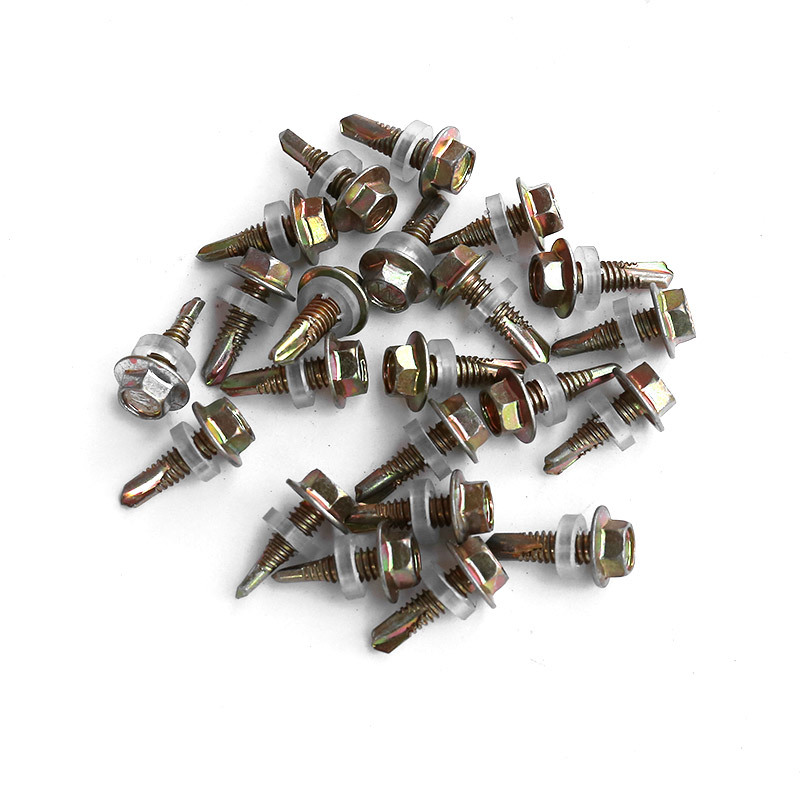

Stud Bolts for Flanges Applications and Specifications in Industrial Settings
أكتوبر . 13, 2024 06:01 Back to list
Stud Bolts for Flanges Applications and Specifications in Industrial Settings
Stud Bolts for Flanges An Essential Component in Mechanical Engineering
In the world of mechanical engineering and construction, fasteners play a critical role in ensuring the integrity and stability of structures and machinery. Among the various types of fasteners, stud bolts are particularly significant when it comes to flanges. Understanding the function, types, and application of stud bolts is essential for engineers and manufacturers alike.
What are Stud Bolts?
Stud bolts are elongated fasteners designed to be used with flanged joints. Unlike regular bolts, which have a head at one end, stud bolts feature threads on both ends while the middle section is typically unthreaded. This design allows them to be inserted through the flanges and secured with nuts on both sides. Stud bolts are primarily used in the assembly of piping systems, pressure vessels, and various types of machinery that require a strong, reliable connection.
The Importance of Stud Bolts in Flanged Connections
Flanges are mechanical components used to join two sections of piping or equipment. The effectiveness of a flange connection largely depends on the type and quality of the fasteners used. Stud bolts provide several advantages that make them ideal for this application
1. Even Load Distribution The dual-nut configuration of stud bolts allows for even distribution of load across the flange surface. This is critical in preventing warping or damage to the flanges.
2. Higher Strength Stud bolts are often available in a variety of high-strength materials, such as carbon steel, stainless steel, and alloy steel. This makes them capable of withstanding significant amounts of tension and shear forces, which is essential in high-pressure and high-temperature applications.
3. Ease of Installation and Maintenance Stud bolts simplify the installation and maintenance process. Since they can be installed from either side of a flange, they reduce the difficulty of accessing fasteners in tight spaces. This design also facilitates easy removal and replacement, which is particularly beneficial in maintenance-heavy industries.
Types of Stud Bolts
stud bolts for flanges

Stud bolts come in a variety of types and specifications to suit different needs
1. Fully Threaded Stud Bolts These are threaded along the entire length and are often used in applications requiring high flexibility in alignment and adjustment.
2. Partially Threaded Stud Bolts These have a plain shank between the two threaded ends, providing greater strength in the unthreaded portion, which can be beneficial in high-load conditions.
3. Heavy Hex Stud Bolts These are characterized by a larger hexagonal head, which is used to enhance torque capacity and reduce the risk of stripping during installation.
4. Customized Stud Bolts Manufacturers can also produce stud bolts to meet specific industry standards or project requirements, accommodating various sizes, coatings, and material specifications.
Applications of Stud Bolts
Stud bolts are widely used in industries such as
- Oil and Gas Used in pipelines and storage tanks where high pressure and safety standards are paramount. - Power Generation Essential in the assembly of turbines and generators where sturdy connections are crucial. - Water Treatment Used in flanged connections of pipes and treatment facilities to ensure leak-proof performance. - Chemical Processing Vital for maintaining integrity in reactors and transport systems under corrosive conditions.
Conclusion
In summary, stud bolts are a fundamental component in the assembly of flanged connections across various industries. Their ability to provide strong, reliable, and easily maintainable joints makes them an indispensable element in mechanical engineering. With advancements in materials and manufacturing processes, the efficacy and application range of stud bolts will continue to expand, underscoring their importance in modern engineering solutions. Understanding their characteristics and applications can help engineers make informed choices and ensure the success of their projects.
Latest news
-
Premium Self Tapping Metal Screws: Strong & Easy Install
NewsAug.02,2025
-
Premium Fasteners Manufacturer | AI-Driven Solutions
NewsAug.01,2025
-
Hot Dip Galvanized Bolts - Hebei Longze | High Strength, Corrosion Resistance
NewsAug.01,2025
-
High-Strength Hot Dip Galvanized Bolts - LongZe | Corrosion Resistance, Custom Sizes
NewsAug.01,2025
-
Best Self Tapping Screws for Drywall - Fast & Secure Installation
NewsJul.31,2025
-
High-Strength Hot Dip Galvanized Bolts-Hebei Longze|Corrosion Resistance&Customization
NewsJul.31,2025

